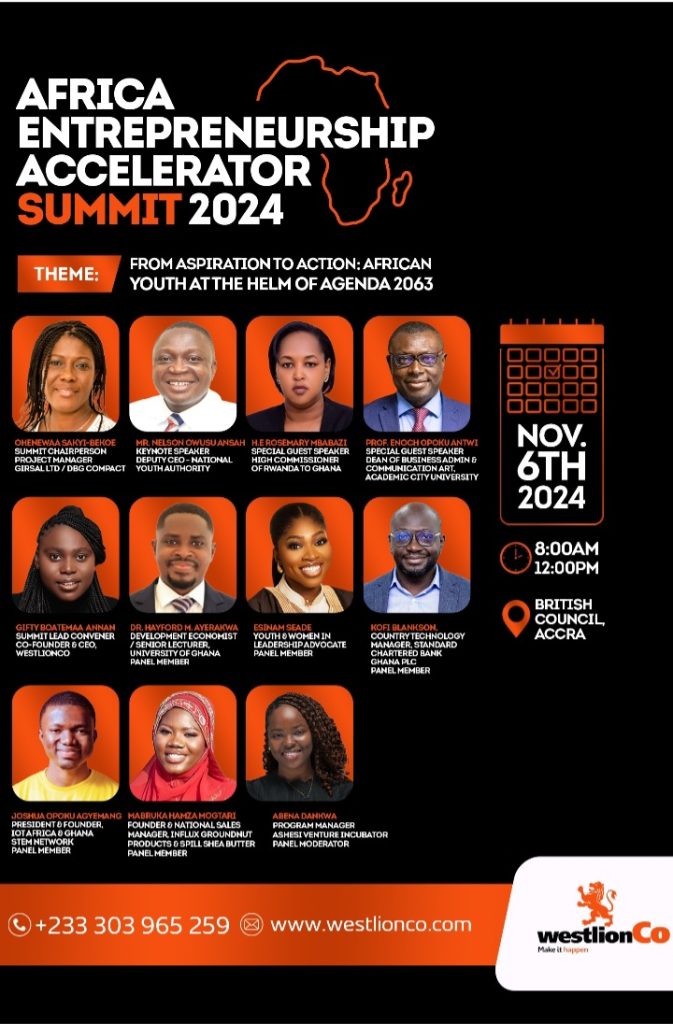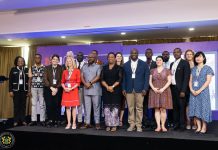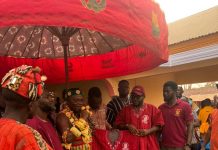Author: Gifty Boatemaa Annan, Pan-Africanist, Writer & Social Entrepreneur
An Unparalleled Surge in Population
In navigating the intricate fabric of Africa’s Demographic Transition and its potential dividend, laying a clear foundation of the continent’s current population dynamics is essential.
In 2004, the United Nations projected that Africa’s population would reach 2.2 billion by the end of the century, 2100.
However, two decades later, Africa’s demographic trajectory has significantly diverged from these predictions.
Fueled by declining mortality rates and increased life expectancy at birth, Statista’s latest forecast estimates that Africa’s population will reach a staggering 2.5 billion by 2050 and 3.9 billion by 2100.
The continent currently holds the position of the second-largest population globally, following Asia.
The World’s Youngest Continent
Africa continues to grow increasingly radiant, with its youthful demographic at the core of this brilliance.
A continent brimming with youthful energy and unexplored prospects, home to the world’s youngest population, with over 60% of its people under the age of 25.
According to Statista’s most recent findings, only three of the 35 countries with the lowest median age worldwide fall outside the continent.
At present, Africa has a median age of 19, whereas other regions have higher median ages: 28 in India, 38 in the United States, 39 in China, and 49 in Japan.
Keep in mind that a country’s median age is a key demographic indicator that reveals the age structure of its population, which in turn influences social, economic, and health policies and developmental focus. Africa’s current median age reflects the continent’s youthful demographic profile, characterized by a significant proportion of young people and a relatively high birth rate.
In contrast, Japan’s median age indicates an aging population, a dire situation that Prime Minister Fumio Kishida has warned could lead to societal dysfunction.
It’s an exciting time to be African!
By 2035, the IMF projects that more young Africans will be entering the workforce than the combined total of the rest of the world.

Additionally, by 2050, one in four people on the planet is expected to be African and one-third of global youth will be in Sub-Saharan Africa.
What an exhilarating time to be African! Now let me ask, have you chanced on the New York Times piece from 2023 titled “The World Is Becoming African”?
If you’re interested in Africa’s evolving role on the global stage, it’s definitely worth a read!
It seems Africa is experiencing a preview of what’s ahead, and the rest of the world is beginning to take notice.
Among the many indicators are African music, literature, and fashion, all of which have become global phenomena.
Sounds from Nigeria and other parts of Africa continue to dominate the streaming charts.
The earlier cited New York Times article conveys it in a more poetic fashion;
As the world grays, Africa blooms with youth.
You can hear it in the music the world listens to.
You can see it in movies, fashion, and politics.
You can sense it in the entrepreneurial drive of young Africans…
Indeed, the potential that our Beloved Africa holds is evidently shaking the global economic table, affecting all its highly desirable delicacies.
Without any shred of doubt, this will be instrumental in redefining the relational tale between Africa and the rest of the world.
Africa Stayed Woke: Navigating change with keen awareness
Lessons from past experiences must have taught Africa to remain vigilant.
In recent years, the term “New Scramble for Africa” has subtly dominated the headlines from Al Jazeera to BBC Africa to The Economist. This phrase alludes to the first “Scramble for Africa,” which unfolded between 1881 and 1914, a period characterized by extensive power and resource seizures.
Given the recent developments on the global scene, such conclusions may be reasonably justified.
Governments and businesses worldwide are racing aggressively to consolidate diplomatic and commercial ties with the continent.
However, it feels utterly liberating to state that “the stereotypical narrative of a broken Africa lacking the agency and resources to propel transformation is gradually making way for a more comprehensive narrative that portrays the continent beyond abysmal leadership, poverty, corruption, and diseases.
Mother Africa remains steadfastly at the forefront of this budding continental renaissance, with a clear vision for her future and a firm grip on an ambitious strategic roadmap known as Agenda 2063.
As stated by the current AUC Chairperson, HE Moussa Faki Mahamat, “Agenda 2063 articulates what it takes to make the continent realize its potential and play its full role in the concert of nations”.
Our Beloved Africa is currently navigating a transitional phase as she seeks to reclaim her rightful place in the grand scheme of global dominance.
African Demographic Transition:
A BOON or A BURDEN
In the face of rapid demographic transitions, Africa stands at a crossroads, facing unprecedented promise, extraordinary opportunities, and considerable challenges as it strives to leverage its demographic dividend.
All indications point to the truth of this statement: “As the world ages, Africa thrives with youthful vitality!”.
The ongoing shift in Africa’s population structure is an occurrence that is considered historic and unlikely to occur again for many centuries.
The current youth bulge in Africa is similar to the ‘baby boomer’ generations in Western Europe and North America following World War II, as well as the demographic trends of the Asian Tigers (Hongkong, Singapore, Taiwan, Republic of Korea) from the mid-1960s to the 1990s, both of which were followed by significantly rapid and sustained economic transformations.
Much like the season that ushered in the Asian Miracle, Africa now faces a unique and revolutionary economic opportunity.
With a youthful population that has the potential to drive a transformative wave of economic growth and development, the continent is on the brink of progress in magnificent proportions. However, harnessing this potential dividend is not an automatically guaranteed outcome.
Therefore, the efforts needed to effectively leverage Africa’s youth bulge should not be underestimated.
A Call to Action
In concluding the introductory phase of this piece, I want to briefly engage my fellow Young Africans.
Our continent is grappling with complex issues of unemployment, shortage of skilled workforce, and migration. However, regardless of how Africa’s development trajectory unfolds, let us not face the future from a position of vulnerability.
Two things worthy of consideration;
• Building the Future from an Intentional Standpoint
By all means, embrace the joys of youthful vigor, however, do not outsource the pivotal choices that make up for the future you envision into the hands of others, be it government, companies, or parents.
In maneuvering a world that often nudges us toward conformity, “Living intentionally” stands out as a key principle for crafting a purposeful future and signifies a fundamental shift toward reclaiming control over our lives. It’s an unpardonable error to allow ourselves to become helpless victims of any system.
• Be an Informed & Empowered Young African
More than just acquiring knowledge; it’s about building a foundation that is robust enough to withstand the ruthless shocks & unforeseen economic plagues in modern times.
Amid societal expectations and external influences, relevant information & timeless skillsets will furnish us with the confidence we need, steering our choices and aiding us in constructing a future that harmonizes with our purpose.







































